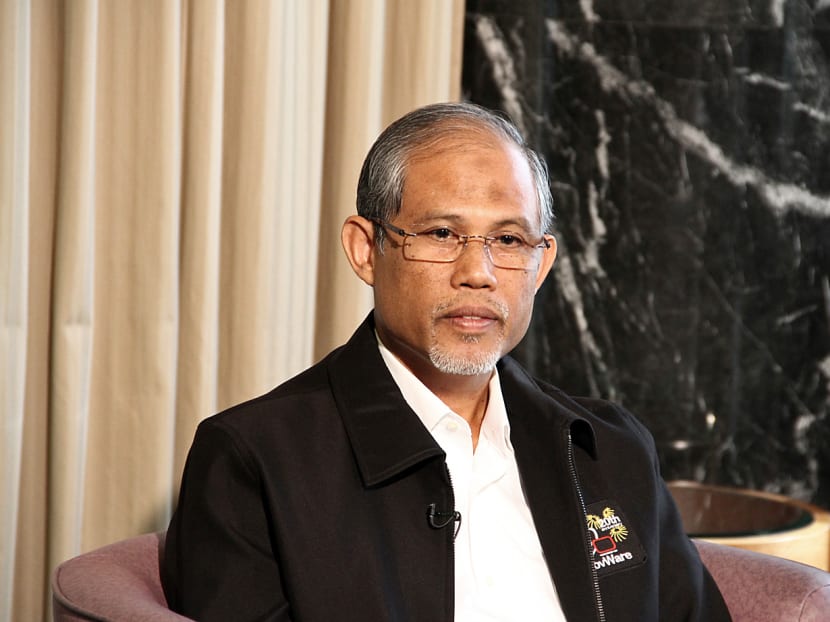Masagos warns of outside influences that threaten harmony in Singapore
SINGAPORE — Outside influences — in the form of radical ideologies or beliefs such as the need to create a perfect religious environment — are reaching Singaporean youths through social media today, even though the Malay-Muslim community here has always been able to live with other communities, said Minister for the Environment and Water Resources Masagos Zulkifli.
SINGAPORE — Outside influences — in the form of radical ideologies or beliefs such as the need to create a perfect religious environment — are reaching Singaporean youths through social media today, even though the Malay-Muslim community here has always been able to live with other communities, said Minister for the Environment and Water Resources Masagos Zulkifli.
In an interview with the Malay current affairs programme Bicara, he touched on several issues affecting the Malay-Muslim community here, including a concern raised recently by Home Affairs and Law Minister K Shanmugam that the Muslim community is growing somewhat distant from the other communities.
Mr Masagos noted that the Malay-Muslim community has all along been guided by its local scholars.
“Despite the various problems that arise from time to time, we can solve them by taking into account the interests of our society and our religion,” he said according to a translated transcript of the interview that was aired on MediaCorp’s Suria channel tonight (Feb 11).
“But now, we are beginning to see (different) influences coming to our country through social media and so on. Some of these influences are disturbing, such as the belief that we should create a (religious) environment that is pure and perfect.”
Citing an example of how Singaporeans used to be able to have a meal together without thinking of what to eat, Mr Masagos noted that now, some have begun to isolate themselves and refuse to eat with other non-Muslims because they do not take halal food.
Mr Shanmugam, in his opening address at a S Rajaratnam School of International Studies symposium last month, noted that some younger Muslims feel that sending greetings to their friends during other religious festivals, or reciting the National Pledge and serving National Service are at odds with their faith.
Mr Shanmugam also said that as religiosity sweeps the world, the Muslim population here is also growing “somewhat more distant” from the rest of society, partly due to influences from the Middle East.
In the Bicara interview, Mr Masasgos said while Mr Shanmugam recognises that the Malay-Muslim community has been able to live together with other communities without causing any conflicts — even though they may arise from time to time — there are new threats today, especially the Islamic State (ISIS) ideology that has influenced many youths here through social media.
They are influenced to join the militant group to form an Islamic state in Syria and Iraq and if they are unable to do so, may cause mischief or create trouble in their respective countries.
Mr Masagos noted that several young men who had been influenced and wanted to travel to Syria or Iraq to join the fight with ISIS had been arrested in Singapore.
“This shows that (radical ideology) has been able to sow the seeds of violence,” he added.
On the Government’s firm stance on banning foreign missionaries who are intolerant of the local situation from preaching here, Mr Masagos said this has been a long-standing practice that applies to preachers of all religions, not just Muslim ones.
It is also dangerous to have anyone who says “wonderful things while in Singapore, things that are appropriate to our religion”, but also talk about things that “sow the seeds of terrorism or intolerance towards other religions” in their own country or on social media, he added.
During the interview, Mr Masagos was also asked about the online discussions that popular Muslim cleric Mufti Menk from Zimbabwe had been banned from entering Singapore to speak at an Islamic conference last November, because of his views, such as Muslims should not wish others Merry Christmas.
Mr Masagos said Singapore has the guidance of local religious scholars who allow and encourage the Muslim community to “develop the spirit of harmony and be compassionate to other communities”.
Reiterating that the ban on intolerant foreign missionaries is not just applicable to Muslims, he added: “We recognise that the Government wants to create a harmonious and peaceful environment for everyone. Anyone who threatens it, whether they are in this country or overseas, we will stop it.”







